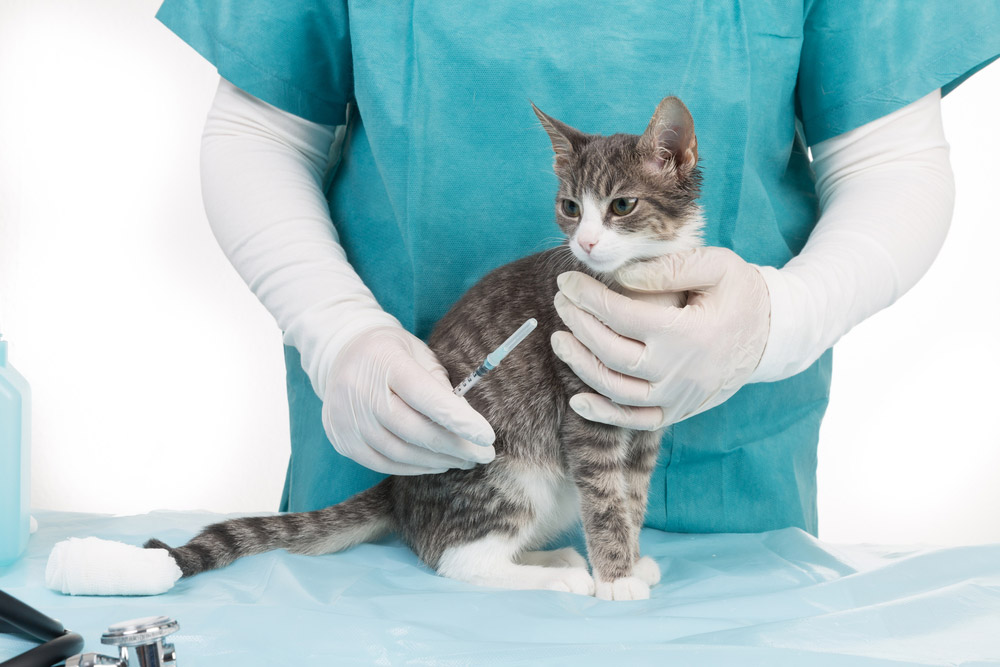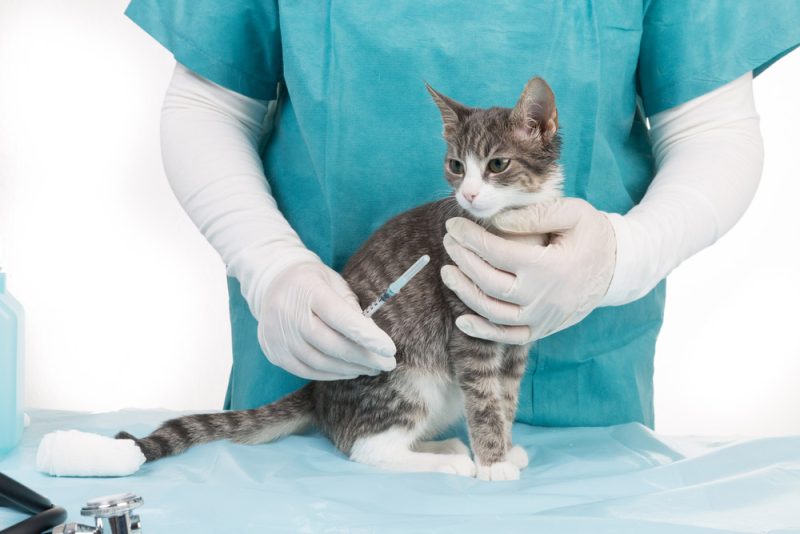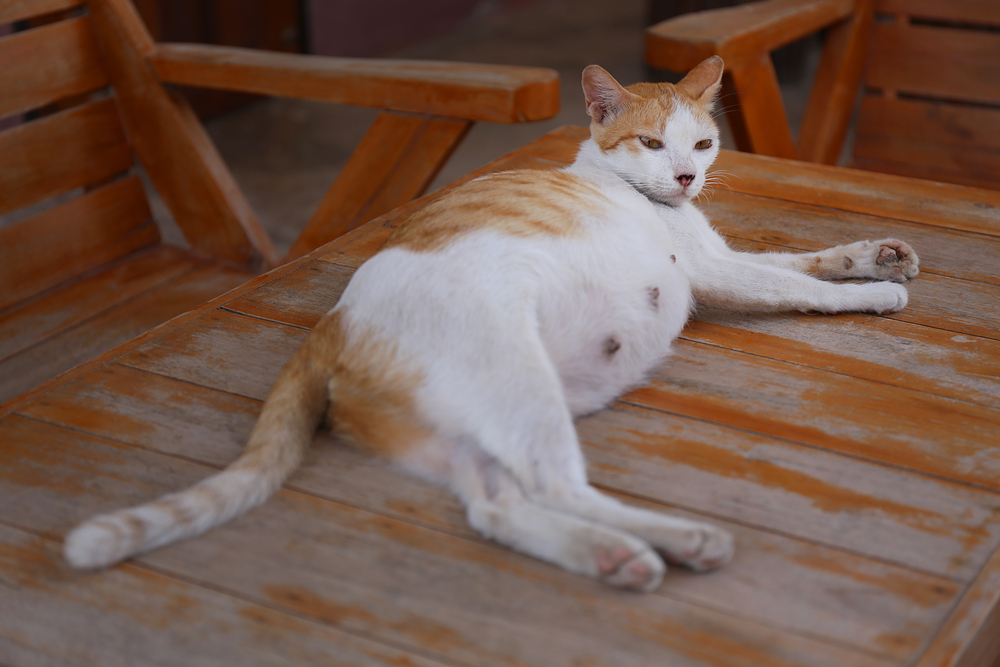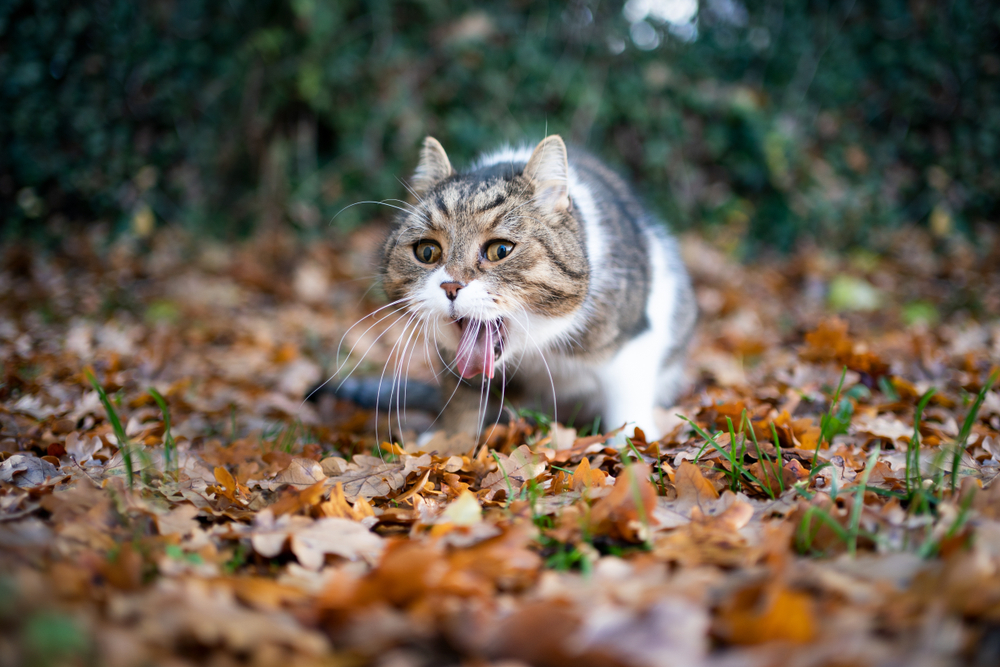Click to Skip Ahead
Cats require vaccinations to help protect them from common infectious diseases. Determining which vaccinations your cat may need can be stressful. In this article, we will discuss vaccinations available to our feline companions and recommended vaccine protocols. The American Animal Hospital Association1 and American Association of Feline Practitioners have developed guidelines often followed in the United States.2 It is important to note that vaccination requirements may vary based on your country, disease prevalence, and your pet’s lifestyle so always contact your veterinarian for their specific recommendations.
The 5 Common Shots for Unvaccinated Cats and Older Kittens
1. Rabies
The rabies vaccination is required by law in many states and is considered a core vaccination. Kittens typically receive this vaccination between 12–16 weeks of age, but the age of vaccination is dependent on state laws and manufacturer guidelines.
After the initial vaccination is administered to a kitten or a cat with an unknown vaccine history, another rabies shot should be administered 1 year later. After this next vaccination, the rabies will need to be given every 1–3 years, depending on local law and the type of vaccination administered. Wildlife can serve as a potential reservoir for this virus, and once contracted, the disease is fatal.
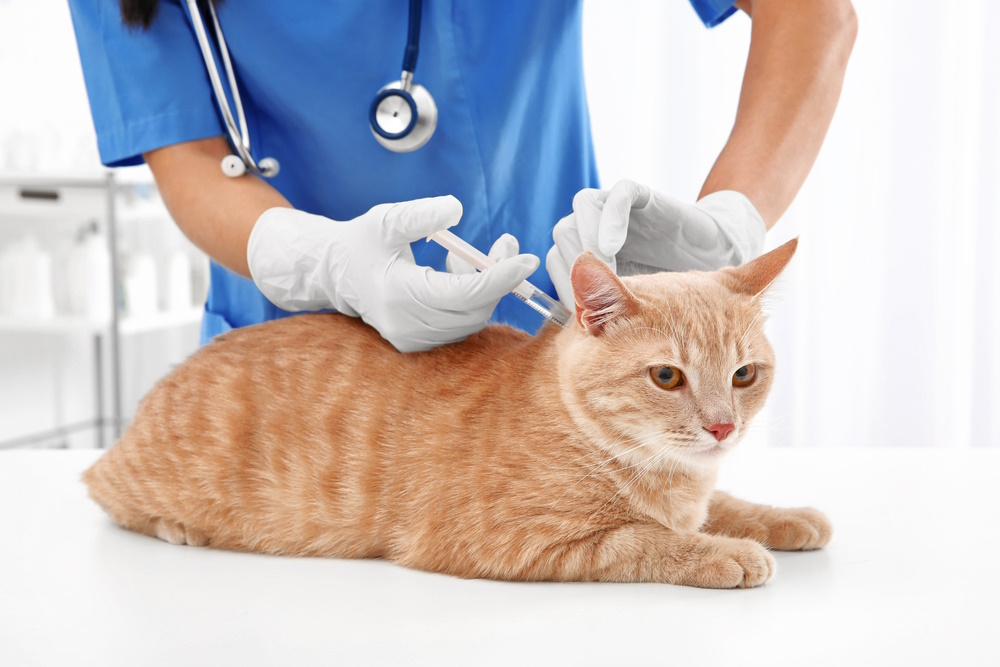
2. FVRCP (Feline Distemper, FRCP, FVRCPP)
This combination of vaccinations helps protect cats against several different viral respiratory and gastrointestinal pathogens and is considered a core vaccination. The vaccination offers protection against feline viral rhinotracheitis (herpes), calicivirus, and panleukopenia (parvovirus). It is initially given in a series to kittens.
The vaccination can be given starting at 6 weeks and is then boosted every 3–4 weeks until the kitten is over 16 weeks of age. In adult cats without a history of vaccination, the vaccination is administered in a two-part series given close to 3 weeks apart. After the completion of the initial series, a kitten can receive an additional vaccine at 6 months, or at 1 year of age. Further vaccinations are administered every 1–3 years, depending on the vaccine type.
3. Feline Leukemia
Feline leukemia is a highly contagious virus that can cause immune suppression and cancer in affected cats. This vaccine is considered a core vaccine in kittens but is considered a non-core vaccine in adult cats, depending on their lifestyle.
This virus is most common in outdoor cats that have close interactions with other cats. It is also administered in a two-part series and then boosted 1 year later. This can be given to cats as young as 8 weeks of age. For cats that are going to have access to the outdoors or live in an environment where there is the risk of exposure to the virus, the vaccination can be continued. The frequency of revaccination will depend on the risk of exposure and the type of vaccine administered.
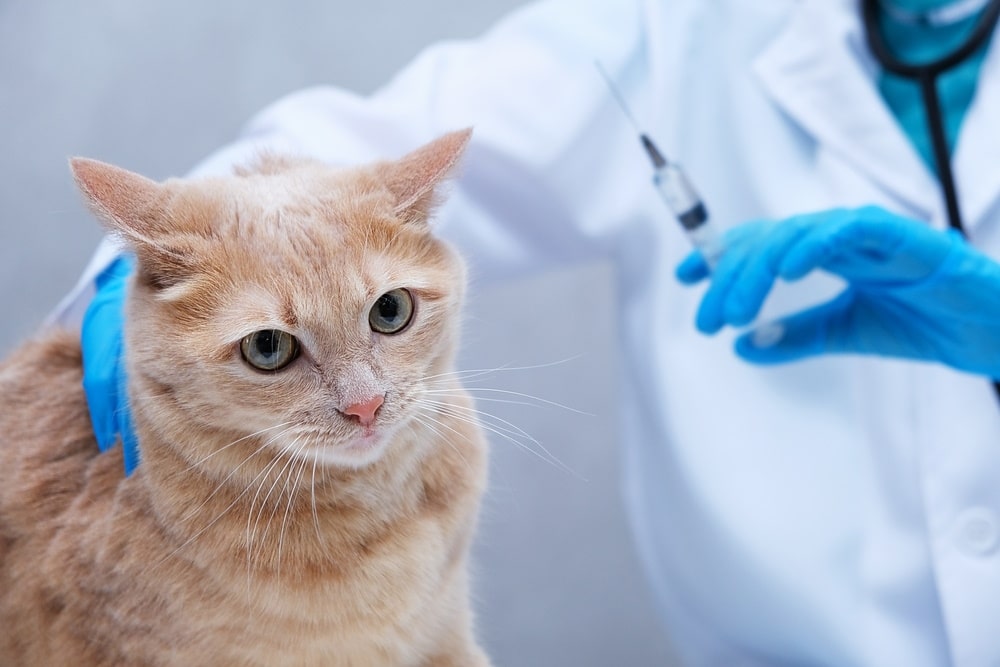
4. Feline Chlamydophila Disease
A vaccination against the bacterial agent Chlamydophila felis is available for cats with a high likelihood of illness. This bacterial pathogen can cause conjunctivitis and rhinitis, typically in young cats. The vaccination can be administered to kittens or adults without a vaccination history and should be administered according to the product label. This is considered a non-core vaccination and is only used in environments in which infection with chlamydia has been confirmed.
5. Bordetella
An uncommon, non-core vaccination available to cats is the Bordetella vaccination. Bordetella is an upper respiratory pathogen that can be spread amongst cats. The vaccination doesn’t offer complete protection but may be beneficial in environments where Bordetella has been confirmed. This attenuated live vaccination is given intranasally and should be administered according to the product label.

Side Effects of Vaccinations
Following vaccination, cats may experience soreness, fever, and lethargy. On occasion, localized swelling may be noted. It is encouraged that reactions that occur following vaccination administration be reported to your veterinarian. In some situations, more serious hypersensitivity reactions may occur including anaphylaxis.
Injection site sarcomas can occur because of inflammation following injection. Fortunately, this is not a common occurrence since non-adjuvanted vaccinations have become more readily utilized. Sarcoma formation is still a possibility, and as a result, most veterinarians will administer vaccinations in a location that can allow for surgical removal if a sarcoma were to develop.
Important Notes
It is critical to note that there are several different ways a vaccine is structured. For example, cat vaccines can be inactivated, recombinant, or attenuated live. Additionally, the routes of administration can also vary. As a result, vaccination protocols may differ depending on the product used. It is important to speak directly with your veterinarian regarding the vaccinations that they carry and their recommended dosing protocols.
Conclusion
Vaccinations are at the core of preventative care. Your veterinarian will be able to help guide you as to which vaccinations your cat should receive. This will be determined by the age of your cat and your cat’s lifestyle. It is imperative to note that no vaccination can offer 100% protection against illness; however, vaccinations can significantly reduce signs of illness.
Featured Image Credit: bmf.foto.de, Shutterstock

